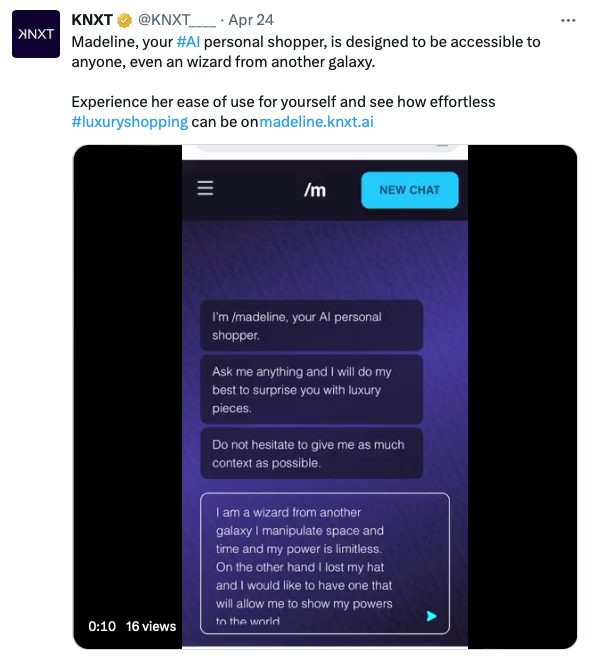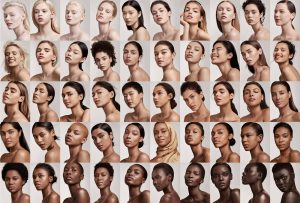Fashion companies, brands and designers are poised to get an unprecedented boost to the bottom-line if they implement generative AI into their retail strategy. The latest to adopt this technology is Kering, the parent company of iconic Houses in Fashion, Leather Goods and Jewelry including Gucci, Saint Laurent, Bottega Veneta, Balenciaga and Alexander McQueen. The global luxury conglomerate recently launched KNXT, a cutting-edge fashion space offering personalized retail experiences, primarily through a ChatGPT-powered chatbot named ‘Madeline,’ which acts as a personal shopper.

“Say goodbye to endless scrolling and hello to a unique way to find the perfect luxury pieces on http://madeline.knxt.ai” per the official Twitter account of KNXT. Madeline encourages shoppers to provide a detailed description of the products they would like to purchase so it can provide recommendations from a product list provided by Kering. Shoppers can check out using ETH simply by connecting a web3 wallet to KNXT. What’s more, for the first hundred shoppers using a Web3 wallet, KNXT is airdropping NFTs from its ‘La Première’ collection, featuring illustrated owls wearing luxury clothing!
This new ChatGPT-powered service doesn’t come as a surprise as Kering has always stayed ahead of the web3 curve. “Web3 and NFTs, in particular, represent a real disruption and we want to be at the heart of this disruption,” Kering’s chief client and digital officer Gregory Boutté stated during a presentation at Kering Imagination Lab, last year. He envisioned digitalization going beyond e-commerce, stating that Kering is “very much ahead of the curve on this.”
The potential of integrating generative AI-powered chatbots into a fashion brand’s retail strategy is immense. This includes interacting with customers in an engaging personalized way; providing tailored product recommendations and information based on customer preferences; provides quick and accurate product information, helping to increase customer satisfaction; generating more sales by providing customers with personalized product recommendations and discounts, leading to higher conversion rates; and helping to increase brand awareness by providing customers with information about products.
‘In the next three to five years, generative AI could add $150 billion, conservatively, and up to $275 billion to the apparel, fashion, and luxury sectors’ operating profits’, per McKinsey. ‘Generative AI is not just automation—it’s about augmentation and acceleration. That means giving fashion professionals and creatives the technological tools to do certain tasks dramatically faster, freeing them up to spend more of their time doing things that only humans can do. It also means creating systems to serve customers better.’
Read More:
Jasmeen Dugal is Associate Editor at FashionABC, contributing her insights on fashion, technology, and sustainability. She brings with herself more than two decades of editorial experience, working for national newspapers and luxury magazines in India.
Jasmeen Dugal has worked with exchange4media as a senior writer contributing articles on the country’s advertising and marketing movements, and then with Condenast India as Net Editor where she helmed Vogue India’s official website in terms of design, layout and daily content. Besides this, she is also an entrepreneur running her own luxury portal, Explosivefashion, which highlights the latest in luxury fashion and hospitality.










